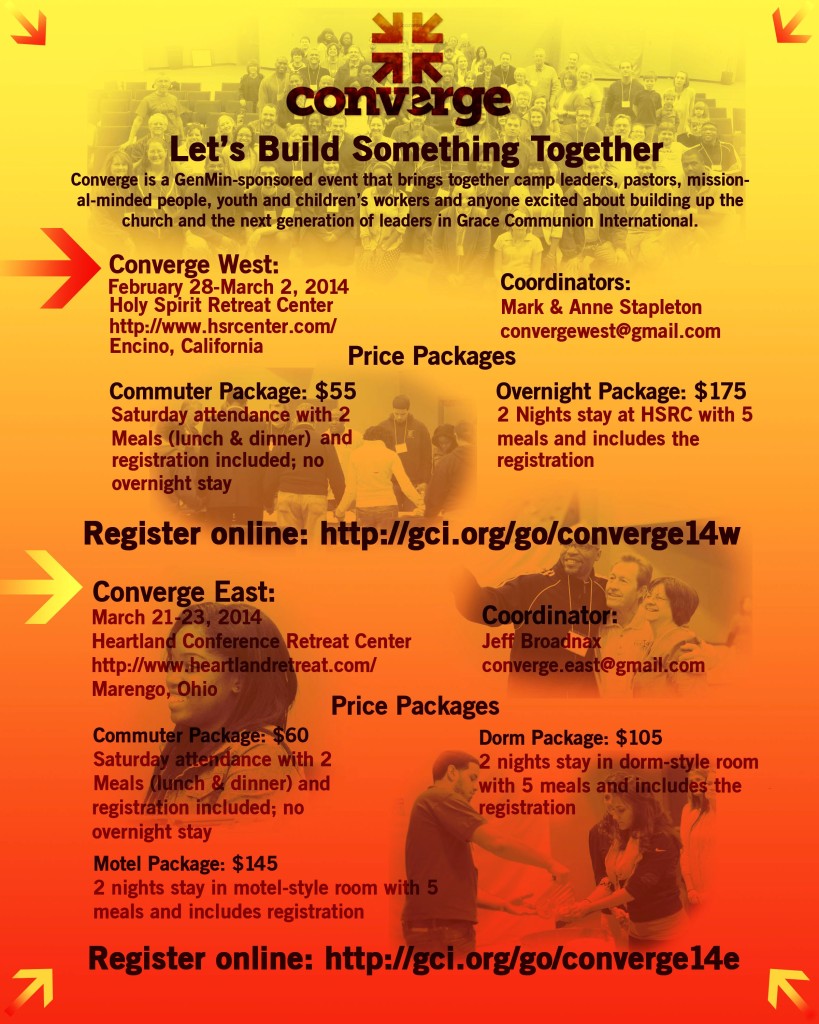Dear Brothers and Sisters in Christ,
 In the early days of our church’s transition from legalism to grace, I think one of the most dramatic changes was the way we regarded the “food laws” listed in Leviticus chapter 11. It was not the most important change spiritually, but this particular “upgrade” in our understanding did impact most of us in practical, down-to-earth ways.
In the early days of our church’s transition from legalism to grace, I think one of the most dramatic changes was the way we regarded the “food laws” listed in Leviticus chapter 11. It was not the most important change spiritually, but this particular “upgrade” in our understanding did impact most of us in practical, down-to-earth ways.
I remember now, with some amusement, how some regarded this change as a kind of litmus test to see if we had really “accepted the new covenant.” Thankfully, we have matured, though some people continue to think that it is somehow “unrighteous” to eat what Leviticus 11 labels as “unclean.” Perhaps this letter will provide a more accurate perspective.
![]() I recall talking with some teenagers years ago about their extra-curricular activities following one of our youth activities. They were all under age and got hold of some beer, which they drank to a moderate level of excess. Then they ordered pizza. Some of the pizzas came with pepperoni. As I discussed with them the illegality and dangers of underage drinking, they were quick to point out that they did not eat the pepperoni. In their minds, it appeared that drunkenness was minor compared to the “sin” of eating pork.
I recall talking with some teenagers years ago about their extra-curricular activities following one of our youth activities. They were all under age and got hold of some beer, which they drank to a moderate level of excess. Then they ordered pizza. Some of the pizzas came with pepperoni. As I discussed with them the illegality and dangers of underage drinking, they were quick to point out that they did not eat the pepperoni. In their minds, it appeared that drunkenness was minor compared to the “sin” of eating pork.
Because we are ministers, not nutritionists or dieticians, it is not our responsibility to tell people what they should or should not eat. What a person decides to put in their stomach might be a matter of wisdom and common sense, but according to the New Testament, it is not a matter of righteousness. But some old habits die hard. If someone decides to follow Old Testament dietary rules, be a vegetarian or even a vegan, they are free to do so. The problem comes when they decide that in doing so they are being more righteous than those who do not follow their preferences.
It is sometimes argued that “clean” food is better for you. Maybe it is in some cases, but it is important not to read health advice into the Bible’s food laws. Some of the great Jewish sages made that mistake. For example, Maimonides thought that unclean animals were disease carriers. Apparently, he did not know about deer ticks, salmonella bacteria in poultry, or E. coli in beef and lamb. Some saw significance in the fact that unclean animals are scavengers and clean animals are not. Whoever came up with that one apparently did not know how close the “clean” fish, sole, is to being a bottom-feeder. Nor, apparently, had they observed that chickens eat disgusting things. I won’t go into detail!
God gave Israel the list of clean and unclean animals as yet another way to keep them separate from the other nations (Gentiles). Some of those nations ate almost anything. An archaeological excavation at the ancient city of Gath discovered that Philistines enjoyed eating dogs. That doesn’t surprise me, given some of the things I am invited to “enjoy” on my travels around the world. I personally feel that some foods should be off-limits to anyone! I still can’t bring myself to eat certain seafood. But that’s my personal dietary preference, not a matter of righteousness.
The real issue in Israel’s food laws was social order. God wanted his people to have a distinct culture, so they would stand out from other nations. The detailed rules of the old covenant effectively accomplished that separation—addressing every aspect of life, including diet. The food laws of Leviticus 11, which were part of the old covenant’s purity laws regulating Israel’s worship and social interactions, limited God’s people to the consumption of “clean” meats. Eating clean meats symbolized communion with God while eating unclean meats symbolized distrust and separation from God.
Thus, in new covenant times, when Peter was struggling with the question of taking the gospel to the Gentiles, God gave Peter a vision of both clean and unclean animals and then commanded him to “kill and eat” (Acts 10:13). Peter protested: ““Surely not, Lord!…I have never eaten anything impure or unclean” (Acts 10:14). In reply, God declared: “Do not call anything impure that God has made clean” (Acts 10:15).
Through this vision, God was teaching Peter that Jesus’ death, resurrection and ascension had ended distinctions between clean and unclean people, symbolized by the end of distinctions between clean and unclean animals. The previously “unclean” Gentiles, like the previously “unclean” animals, were now declared clean in God’s sight. In Jesus, Israel and the Gentiles were brought together as the one people of God, filled with the Spirit.
Our calling is to participate with Jesus in what he is doing to take the gospel into all the world—unto all people. As we do, we are free to have fellowship (including table fellowship) with everyone. Paul corrected those who passed judgment on others concerning food preferences: “I know and am persuaded in the Lord Jesus that nothing is unclean in itself; but it is unclean for anyone who thinks it unclean” (Romans 14:14 ESV). Paul also declared that “Everything is indeed clean, but it is wrong for anyone to make another stumble by what he eats” (Romans 14: 20 ESV).
Paul’s point was that we should not insist that others eat what we regard as acceptable. Eating or not eating does not define a right relationship with God. In the multi-cultural setting of the city of Rome, Paul urged that dietary differences between Jews and Gentile Christians be accommodated, declaring that “the kingdom of God is not a matter of eating and drinking but of righteousness and peace and joy in the Holy Spirit” (Romans 14:17 ESV).
The new covenant gives us new direction related to a new kind of fellowship that is centered around Jesus Christ. Let’s help our people follow that direction.
Your brother in Christ,
Joseph Tkach


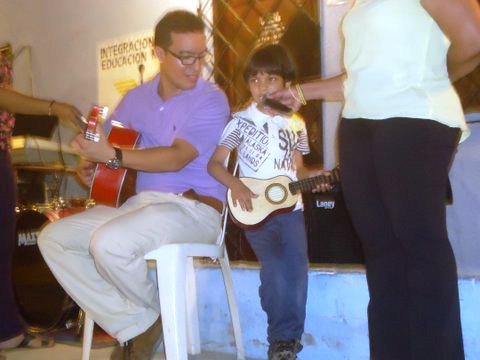
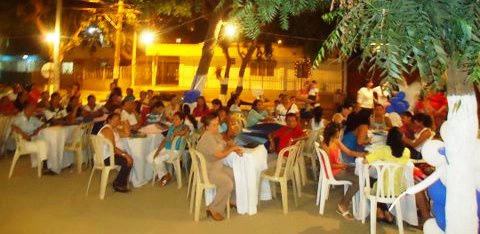
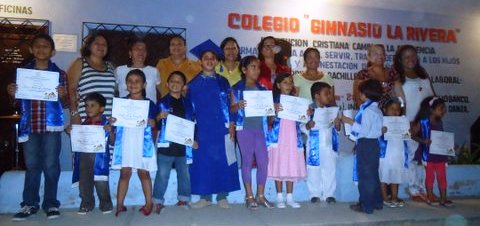
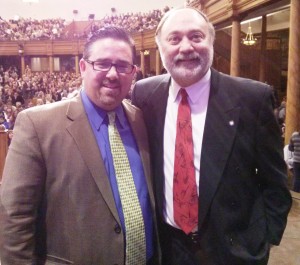
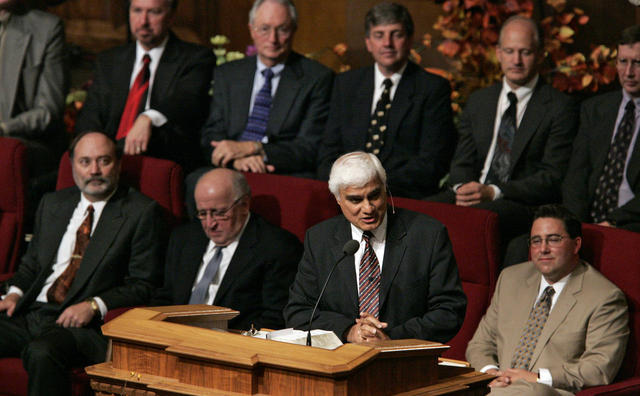
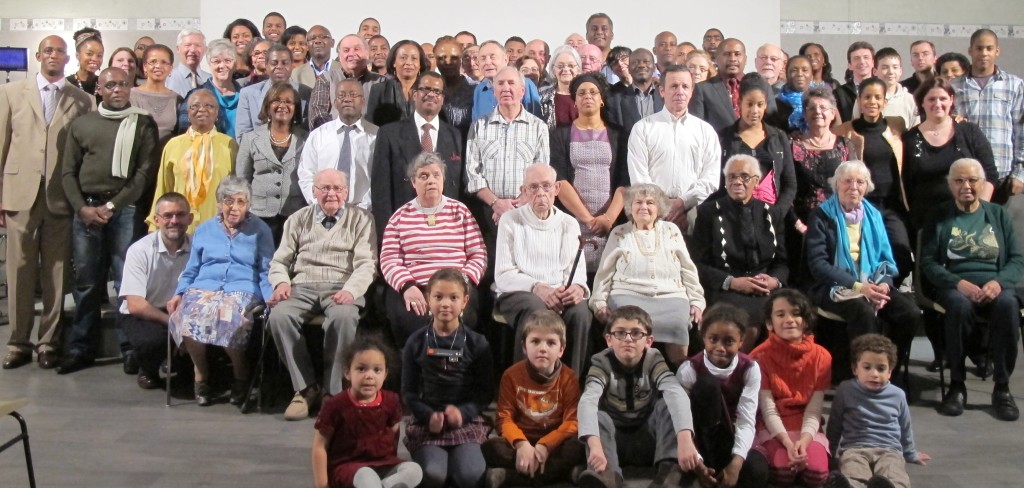
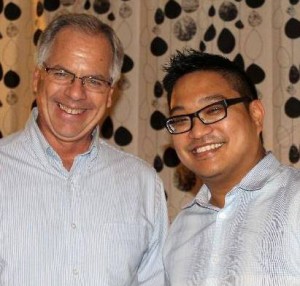
 A new GCI church was launched recently in Masterton, New Zealand. Of the 25 people who attended the first service (pictured below), most came from the nearby community, including friends and colleagues of Manny Ornejas (pictured at right) who helped plant the church. Manny had pastored in the Philippines prior to moving to New Zealand to work as a beekeeper. He found a sizeable Filipino population in Masterton and discovered that many of them do not have a church home. The new church is reaching out to this group of unchurched people.
A new GCI church was launched recently in Masterton, New Zealand. Of the 25 people who attended the first service (pictured below), most came from the nearby community, including friends and colleagues of Manny Ornejas (pictured at right) who helped plant the church. Manny had pastored in the Philippines prior to moving to New Zealand to work as a beekeeper. He found a sizeable Filipino population in Masterton and discovered that many of them do not have a church home. The new church is reaching out to this group of unchurched people.
